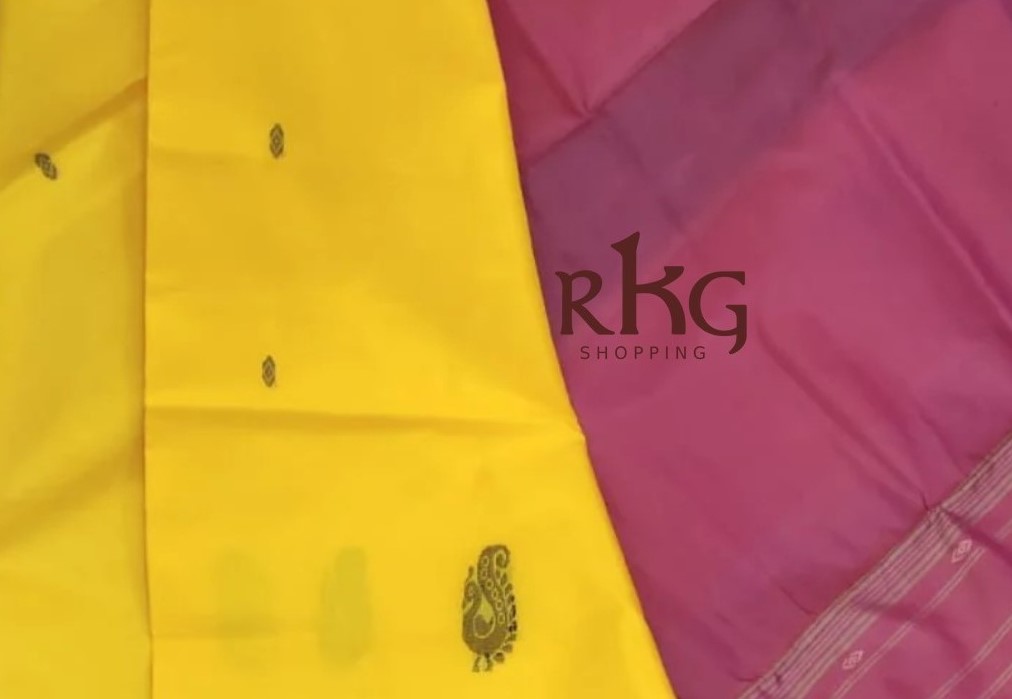Nisha Vaish, the visionary Founder of RKG Shopping, has been a driving force behind the revitalization of India’s handloom sector. Through her tireless efforts, she has facilitated the integration of weavers into the global market, ensuring fair compensation for their exquisite craftsmanship. As a trailblazing woman entrepreneur, Nisha has defied societal norms and scaled the heights of success through sheer determination and hard work.
Her mission transcends mere business objectives; it’s about empowering communities and making a tangible difference in people’s lives. By providing a platform for thousands of weavers to showcase their products, RKG Shopping has become a beacon of hope, offering sustainable livelihoods and economic stability to countless families.
In a recent dialogue with The Interview World, Nisha Vaish shared insights into her entrepreneurial journey, emphasizing the passion that drives her, the challenges and triumphs in the handloom sector, the significance of leveraging technology in e-commerce, and valuable advice for aspiring entrepreneurs. Her story serves as an inspiration to all those striving to make a meaningful impact in the world of business and beyond.
Q: How did you come to embrace entrepreneurship?
A: Driven by a fervent desire for self-actualization and a profound commitment to societal betterment, I ventured into entrepreneurship. While traditional employment entails adherence to organizational constraints, entrepreneurship grants autonomy in decision-making and the ability to impact a broader audience.
My choice to focus on handloom textiles stems from a deep-seated admiration for Indian culture. Beyond being mere fabric, Indian Handloom symbolizes our rich heritage and ancient civilization. Furthermore, the handloom sector, which predominantly employs women, serves as a platform for contributing to women’s empowerment. This aspect adds a layer of satisfaction, knowing that my endeavors are playing a part, albeit small, in fostering gender equality and economic independence.
Through entrepreneurship, I aspire to not only preserve cultural legacies but also to create opportunities for positive social change, one thread at a time.
Q: How can we effectively bridge the gap between the handloom weaver community and the global marketplace, ensuring their products reach a broader audience and create sustainable livelihoods?
A: We actively brand their products on our website, strategically showcasing them to a global audience. Our commitment extends beyond mere promotion; we personally visit diverse weaving clusters, meticulously identifying challenges and implementing tailored solutions to bolster their operations. Our ethos emphasizes fair pricing structures, empowering these artisans and weaving communities. Through our comprehensive approach, we not only promote their products on our website and across social media platforms but also strive to amplify their reach, providing invaluable global exposure.
Q: What are the primary obstacles and hurdles encountered by women entrepreneurs in today’s business landscape?
A: Navigating my entrepreneurial journey presents significant hurdles stemming from diverse responsibilities. Balancing various tasks often results in a scarcity of time and resources. Moreover, the lack of ample exposure and mentorship exacerbates these challenges. Finding the right balance amidst these constraints is essential for success. Overcoming these obstacles requires strategic planning, resourcefulness, and a proactive approach to seeking out opportunities for growth and development.
Q: How can we effectively preserve the indigenous art of hand-weaving in the face of technological advancements and the decline of traditional practices?
A: We’re actively identifying and raising awareness about the unique qualities of handlooms compared to powerlooms, and we’re actively promoting this among our customers. By sharing videos showcasing the intricate craftsmanship behind our products and hosting live chats with skilled weavers, we aim to deepen customers’ understanding of the distinctive nature of hand-crafted textiles. This approach benefits both weavers and customers alike, fostering appreciation for the artistry and authenticity of handmade goods.
Q: How is the handloom segment performing in both the Indian and international markets, in terms of market response?
A: Handloom products have a promising scope in foreign markets due to the growing interest in Indian handcrafted items. The market for handlooms and handicrafts is substantial. By consistently delivering high quality at competitive prices, we foster repeat business. Additionally, consumers are becoming increasingly conscious of their textile choices.
Notably, there is significant demand for various Indian specialties: Jaipur’s block-printed items, Kaanjeevaram Silk Sarees from Tamil Nadu, Maheshwari Sarees from MP, Ikat Silk and Cotton fabrics from Andhra Pradesh, Kota from Rajasthan, Ilkal from Karnataka, and Jamdani from West Bengal, among others. Moreover, the market for traditional clothing is rapidly expanding. Customers are showing a preference for sustainable, environmentally friendly garments over cheaper synthetic fabrics.
Q: How are technological advancements enhancing and synergizing with the e-commerce landscape in India?
A: In India, the dynamic evolution of E-commerce owes its momentum to technological advancements. Innovations like Electronic Fund Transfers, e-wallets, chatbots, live chat services, high-speed fibre optics, automated marketing campaigns, real-time shipment tracking, RFID, and beacon technologies are fueling the sector’s rapid expansion.
This technological surge has revolutionized customer behavior, granting them unparalleled convenience. With a simple click, shoppers gain access to an extensive array of products, coupled with seamless payment solutions and competitive pricing. This transformative shift not only reshapes the retail landscape but also underscores the pivotal role of technology in shaping consumer experiences and driving the E-commerce revolution forward.
Q: How can budding entrepreneurs in this space best navigate the challenges and seize opportunities for success?
A: Center your approach around prioritizing customer needs, fostering transparency, and employing technology to optimize operations. Fair compensation for weavers not only cultivates market expansion but also facilitates global product accessibility. Engage in social responsibility initiatives, including educational support for weavers and their families, while also aiding vendors in enhancing product quality. Recognize the crucial role of understanding customer feedback in refining your offerings and services. By actively incorporating these principles into your business model, you not only ensure customer satisfaction but also contribute positively to societal and economic development.



